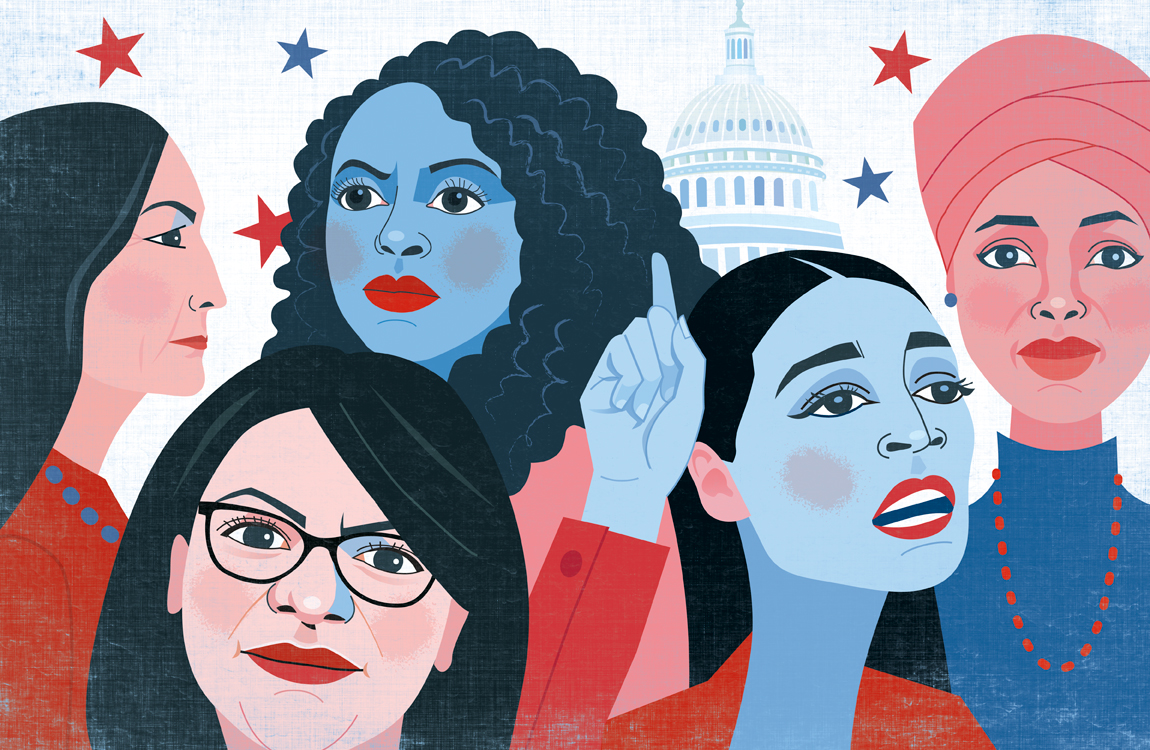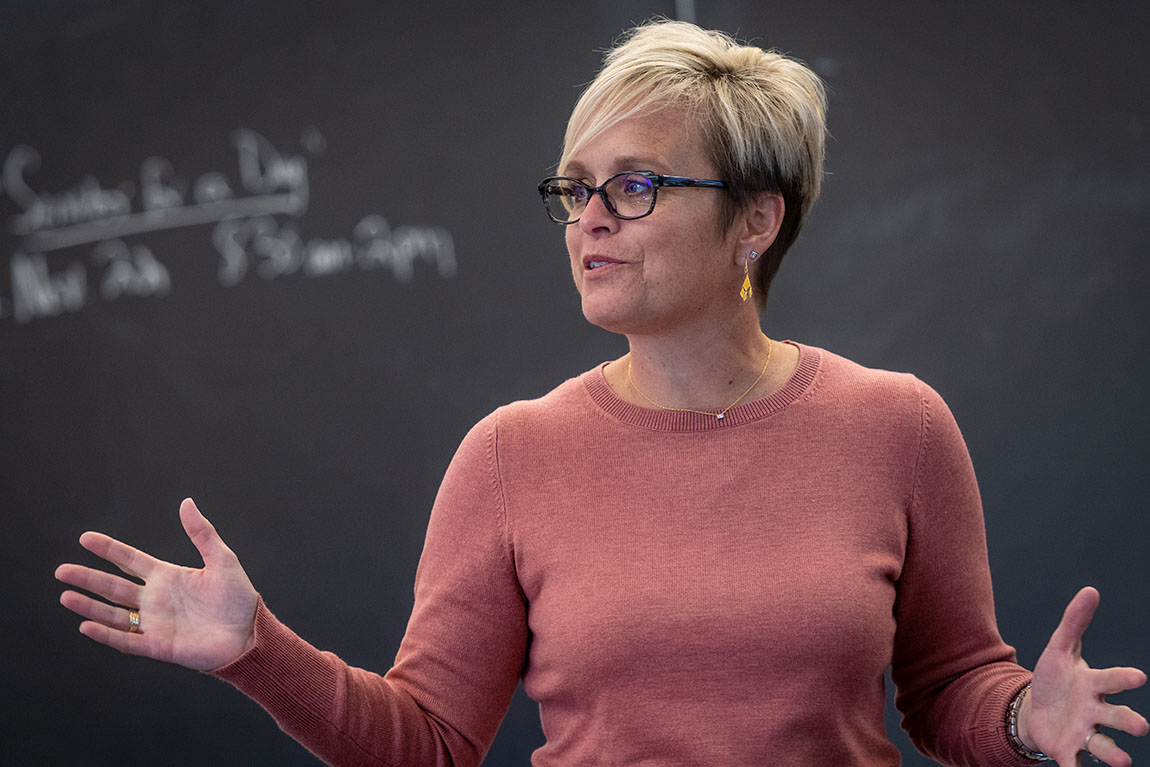A Class of Published Authors
Students in a political science course about the 2018 elections had their research collected into an Open Educational Resource available for free to scholars around the world.By: Meghan Kita Tuesday, November 5, 2019 09:00 AM
 Illustration by Colleen O'Hara
Illustration by Colleen O'HaraThis spring, Professor of Political Science Lanethea Mathews-Schultz taught a special topics course called 2018: The Political Year of the Woman. It focused on the last election, which resulted in an unprecedented number of women serving in Congress—102 in the House and 25 in the Senate. Mathews-Schultz also did something unprecedented: On the first day of class, she informed her students that they’d be writing a book.
“I told Professor Mathews-Schultz how nervous I was,” says Monique Beaupre ’20, a political science and media & communication double major who took the course. “But it’s also super exciting. My writing is out there, which is incredibly vulnerable but also really rewarding.”
By “out there,” Beaupre means on the internet—her final research paper, along with those of her classmates, became part of the digital “book” 2018 Political Year of the Woman Election: A Critical Examination. It’s an Open Educational Resource (OER), which means it’s publicly available online and can be adapted or utilized by other scholars. It’s hosted on the Pressbooks platform, and it’s the first student-generated research compilation created at Muhlenberg. (Other OERs from the College community have been designed as textbooks.)
The idea for the course came from Mathews-Schultz’s own undergraduate experience: “I was a college student during the 1992 Year of the Woman elections. I never had an opportunity as a student to talk about what that meant,” she says.
From the start, she intended to publish her students’ work, but she wasn’t sure how. She mentioned that to Outreach & Assessment Librarian Jess Denke, who suggested creating an OER. Senior Instructional Design Consultant Tim Clarke ultimately helped Mathews-Schultz (pictured below) and her students learn the Pressbooks platform and assemble the finished product.

The 14 students in the class immediately began thinking about which angle of the election they might explore and were formulating research proposals within weeks. Mathews-Schultz made peer-review of classmates a frequent part of the process; Beaupre estimates that she produced more than 10 drafts before her paper was finalized. The students also had an opportunity to present their unfinished work and solicit feedback at the Pennsylvania Political Science Association Annual Meeting, which Muhlenberg hosted in April.
“One of the things I really wanted to impress upon the class is that research is not a solitary enterprise,” Mathews-Schultz says. “You can’t do research without being in communication with other scholars. What your research is is a piece of a conversation.”
As the semester neared its end, Mathews-Schultz and Clarke collaborated with students to ensure their papers were polished and properly formatted in Pressbooks. The latter job was not always simple or straightforward, but it did provide learning opportunities.
“The challenges the students experienced with, for instance, embedding complex graphs and tables, help digital learning staff support future web and e-book publication,” Clarke says.
Today, anyone can view the Pressbook, which includes research on topics such as the difference between how male and female candidates discuss their lives while campaigning, the reasons Republican women lost ground in the 2018 elections and how The New York Times covered Alexandria Ocasio-Cortez, the youngest woman ever elected to the House, in the leadup to both the primary and general elections (Beaupre’s topic).
Now, Beaupre is working on an honors thesis for media & communication. “One of the assignments was to show your favorite piece of work, and I pulled this [OER] up,” Beaupre says. “I’m much more prepared having taken this class for writing my thesis.”
